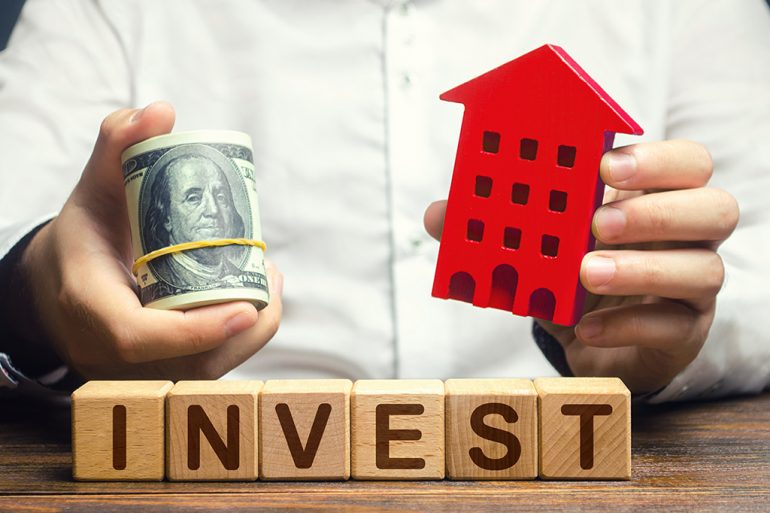Breaking into Commercial Real Estate post Covid-19
What Types of Commercial Real Estate Can I Invest In?
You’ve made the decision to tackle distressed real estate investing — congratulations! But have you considered what types of distressed real estate to invest in? Residential real estate is the starting point for many investors, but there’s a whole world of commercial real estate ready and waiting. Savvy investors who are willing to take the time to research and dive into commercial real estate may end up more successful than if they were to pursue residential real estate. With Covid-19, there is soon to be a glut of distressed commercial real estate hitting the auction blocks.
And we’re here to get you started. The types of commercial real estate that we will look into are multifamily, retail, land, industrial, and office. After learning more about each of these, be sure to share with us what kind of commercial real estate is most interesting to you.
Multifamily Real Estate
Multifamily real estate is any property that is built to provide housing for five or more families. Real estate with one to four units is considered single-family housing, so that can be eliminated from this discussion for now.
Investing in multifamily real estate is not typically done by individual investors but rather larger institutional investors. Additionally, it may be done by investors who syndicate deals on behalf of groups of investors. Here’s an example of how syndication might play out:
An individual — known as the deal sponsor (or syndicator) — hunts down apartment deals for a group of investors that is ready to contribute a certain amount of capital to execute acquisition of the property in exchange for an agreed-upon return on the deal. The investors receive their agreed-upon return, and the deal sponsor typically receives a syndication fee to compensate them for the time and effort they contributed to putting the deal together. Often, deal sponsors also receive an equity percentage for their work.
Multifamily real estate offers a multitude of advantages to investors. One of the most obvious advantages is that you, the investor, have certain economies of scale you can utilize when you have more units under fewer roofs. For example, consider the issue of roof repairs.
When a terrible hailstorm or weather event does damage to a portfolio of single-family investment properties (let’s say you have 40), then you have lots of individual roofs that have to be replaced all over town by different crews at different times. When you have 40 units under one or two roofs, then you can have a single roofing company or crew replace the whole thing. Because they are able to do it all at once without the need to travel — not to mention the setup and tear down between jobs when moving between single-family properties — the work is usually charged at a steep discount.
This is just one of many pros that make multifamily investing attractive to those who are keen on leveraging their time and capital as much as possible. By acting as a deal sponsor, a commercial real estate investor can make their capital work much harder than many other avenues.
Multifamily deal sponsors are capable of taking on significantly larger deals than most individual investors and often rely on their massive network of investors to pull together funds to execute such real estate acquisition. This method of obtaining multifamily real estate is a great choice for investors who have had careers in other fields or have an expansive network of sophisticated investors interested in putting their money to work.
Retail Real Estate
Retail real estate consists of properties that host retail and entertainment vendors. Shopping malls, movie theaters, outlets, strip malls, and the like are prime examples of retail real estate properties. Most of the places you go shopping in person for non-grocery items are owned by a company or individual that leases the property to the tenant you are purchasing goods or services from.
Something fascinating about retail real estate is that it is often more speculative and development-based than other types of real estate investments. Many retail real estate owners actively purchase land in the path of development where they believe there will be a need for consumer-focused retail stores. They then pre-sell spaces to tenants, build out the spaces on their tenants’ behalf, and lease to them for long terms (10 years or more — sometimes for as long as 99 years).
Another strategy used by retail real estate owners is a process in which the investor purchases land from land bankers long before the intersection or frontage where it is located has been engulfed by development. The investor waits until they believe the land is 9-12 months away from being surrounded by developments. At that time, they build multi-tenant buildings on-site (like a strip mall) that they begin actively marketing to businesses with the intent of leasing the spaces out.
Usually, there are active restrictions put in place by the owner that determine the types and number of tenants that can be in their property. This is an effort to increase the variety of businesses so that shoppers are more likely to come to one store and end up staying longer due to the other stores at the same location.
You can find a real-life example of this the next time you drive by a busy intersection in your area. Take note of the tenants — you are not going to see a four-tenant building with four donut shops. Instead, you might find a donut shop, a clothing store, a fast-casual lunch or dinner spot, a financial institution, and a mail/printing store. Depending on the proximity to residential neighborhoods, you will more than likely see dry cleaners as well.
Before investing in retail real estate, consider its viability moving into the future. With more and more shoppers going online for their shopping needs, what does the future of these retail shopping centers look like? Will there be a need for shopping in person, or will all of the shops that previously needed concrete goods to be profitable shift their focus to establishing a stellar online shopping experience with quick shipping times and a global presence?
Land…Bank on Time and Growth
How do you invest in land, and what are you supposed to look for when getting into commercial real estate investing? Well, it depends! Within land investing, there are niches.
There are “land bankers” focused on purchasing land with the intent to sell it in the future once it has increased in value. There are agricultural investors who purchase large swaths of land to lease back to farmers for fixed annual rates per acre (sometimes in addition to a percentage of crop sale revenues). There are even developers who purchase land for the purpose of dividing it out (referred to as “platting”) and selling lots to home builders and individuals.
The important thing when making the decision to invest in land is to stick to what you know and become the best at it. Land is one of the few things in the world that cannot be replicated — there is a limited amount, and the land available is only decreasing. Demand for this type of real estate will only go up.
One advantage to land investing is the low barrier to entry. Land does not have to be expensive, although it can be. If you buy acreage in a popular area of your city, you are going to pay a premium. If you decide to purchase acreage outside of city limits, it is not uncommon to find land that costs only hundreds of dollars per acre.
If there is not an immediate demand from farmers or others to lease your land from you, the FSA’s Conservation Reserve Program (CRP) is a fantastic option to consider. When you put your land into the CRP program, the FSA pays you annual rent on a per-acre basis. This rate is determined by location. The program’s intention is to restore environmental health and quality through the removal of agricultural production and planting of native plant life.
The catch? CRP contracts typically run 10 to 15 years and are quite difficult to get out of, especially if you are attempting to develop the land for non-agricultural uses.
Industrial Real Estate
Industrial real estate is a great route for investors who want to get into commercial real estate but are looking for lower hassle, longer-term, and more diversified investment options than residential alternatives.
Industrial properties are often thought of as warehouses, but think about what they are used for — storage, manufacturing, logistics, and distribution, to name just a few things. With their many potential uses, industrial properties have a potential tenant base that is larger than that of other properties.
Tenants in industrial properties typically require longer leases due to the nature of their businesses as well as the furniture, fixtures, and equipment required for their daily work. This is a positive when considering vacancy loss and rent increases. By signing a 10-year lease with a tenant and having annual rent increases in writing before the lease starts, there will be no need for an uncomfortable conversation about raising rents or lease renewals.
These long leases are also great when it comes to the cost of filling vacant units. Instead of paying a new broker every year to lease your property, get it done right the first time for a longer lease period.
Office Space
Investing in office real estate is an interesting space currently. Thanks to the COVID-19 pandemic and working from home becoming more normal globally, office space is becoming more specific to the clients in need of it. Should you decide to get into investing in office space, your client base will depend on the property that you own.
With large office buildings, you will often rent to larger companies in need of extensive space and capabilities for their employees and operations. They will rent out entire buildings or multiple floors for their staff to work out of. Small buildings, on the other hand, are usually rented to individuals or small businesses looking for a place to meet clients and hold company meetings.
In recent years, coworking spaces have been growing in popularity. These spaces are usually office space converted into a combination of open concept workspaces along with private conference rooms and individual offices. These private rooms are rented on hourly, daily, weekly, and monthly terms, with discounts applied to longer contracts.
As more and more institutional investment firms liquidate their office real estate, investors are jumping in to take advantage of the sales and turn these properties into profitable and innovative investments. Are you one of these clever investors looking to implement your bright new ideas and revolutionize the office real estate space?
Which Type of Commercial Real Estate Is Right for You?
At a glance, the commercial real estate investing space can be quite overwhelming for new investors. However, after taking a closer look, many individuals realize that their experiences and knowledge gleaned from other areas of their life lend them an advantage in a particular niche within the commercial field. If you play your cards right, your commercial real estate career will flourish.
The types of commercial real estate that we talked about investing in are multifamily, retail, land, industrial, and office space. Determine what you are most interested in and knowledgeable about so that you can go forth and become the best commercial real estate investor in your target market!








